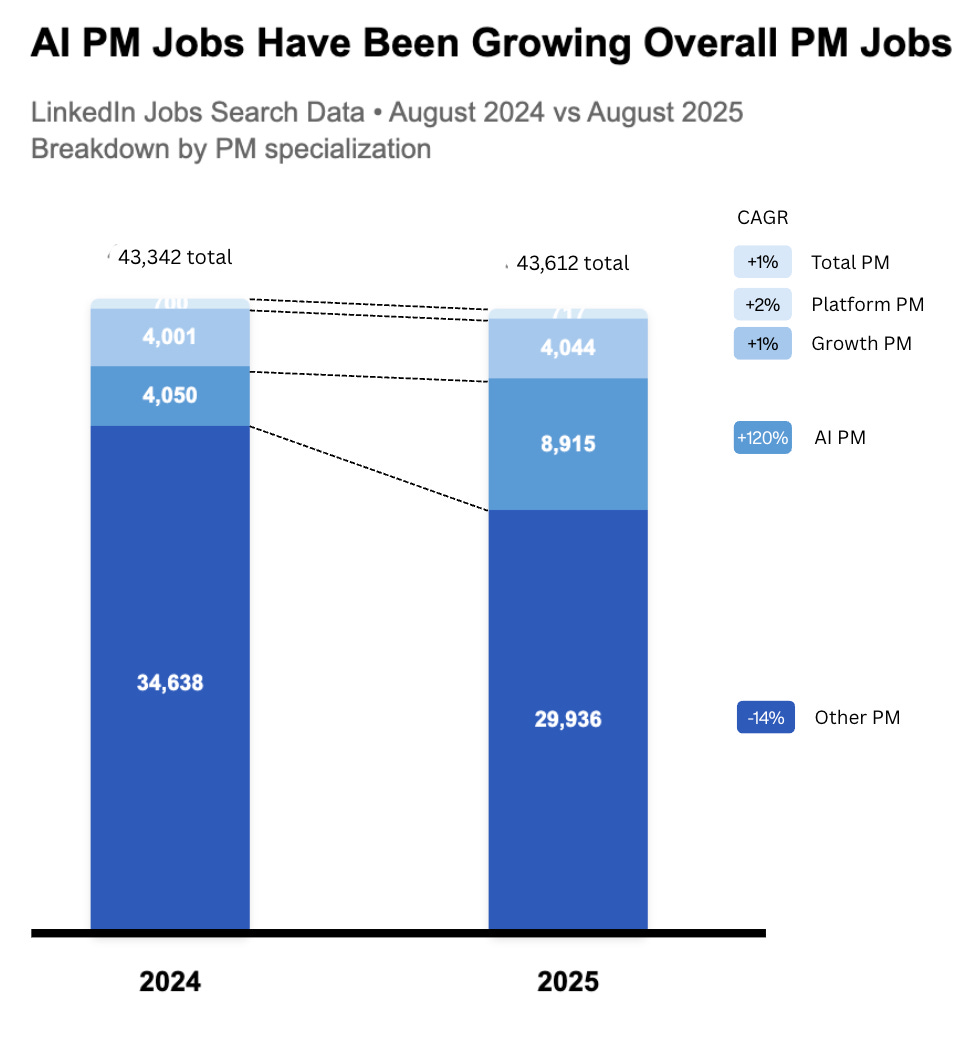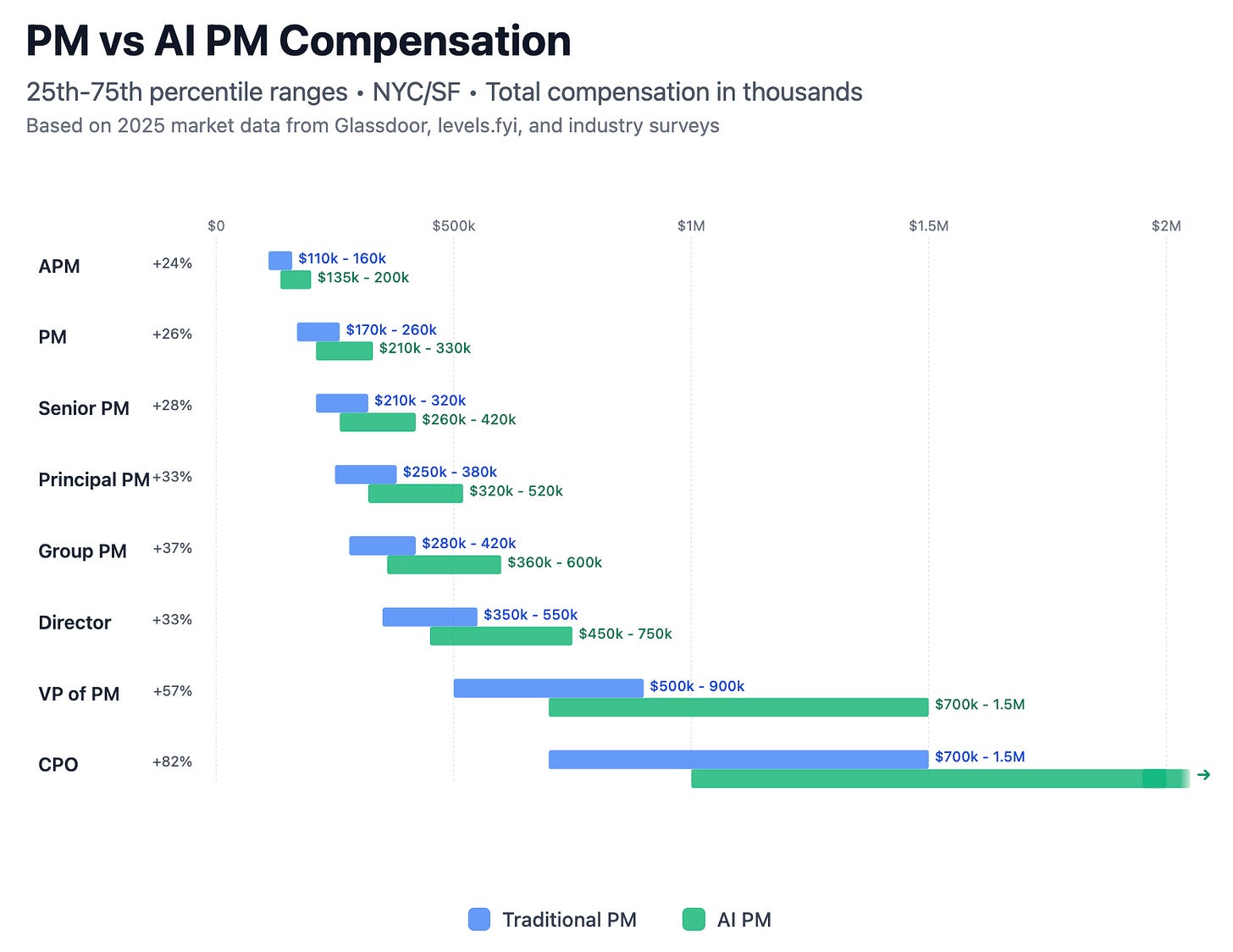Growth Ritual #83
📋 In This Issue:
Why Big Tech is Desperate to Pay Non-Engineers $300K+ for AI Jobs
AI Just Laid Off 13% of Gen Z; How to Profit from AI's First Big Layoff Wave — 🔒
Wall Street's Newest Problem is a Founder's Biggest Opportunity — 🔒
How Simple Hardware + Cloud AI Unlocks a Multi-Billion Dollar Market — 🔒
Exploiting the AI Expectation Gap: The Biggest Arbitrage of 2025 — 🔒
Know someone who’d love this? Invite them and you’ll both win—your friend discovers the newsletter, and you unlock 1 month of premium access.
Why Big Tech is Desperate to Pay Non-Engineers $300K+ for AI Jobs
Let’s talk about that $300,000+ job in AI. You know, the one at Google, OpenAI, or Figma.
The one that feels like it’s reserved for machine learning PhDs from Stanford who dream in Python.
You’re probably thinking: "Cool story, Selim, but I can't code a neural network from scratch. That door is welded shut for me"
That’s where everyone is getting it wrong. Dead wrong.

The single fastest-growing, highest-paying job category in tech right now isn't just for the engineers. It's for the translators, the strategists, and the obsessively curious.
I'm talking about the AI Product Manager. And the dirty little secret is that companies are starting to realize that the best people for these roles often don't come from a traditional tech background.
This isn't just an opportunity; it's an arbitrage play on your existing skills. And I'm going to give you the roadmap to cash in.

The Gold Rush is Real, But the Map is Wrong
Let's get the facts straight. This isn't hype. PM job listings are only growing because of one single category: AI PMs.
Every tech giant worth its salt is desperately hiring for these roles:
Atlassian
Figma
Airtable
Anthropic
OpenAI
Google
And the compensation? It’s hitting $300K and climbing.
Why?
Because the leverage is insane. A good AI PM can ship a feature that generates millions. A bad one can sink a product with a single flawed model.
The common wisdom says you need to be a technical guru to play. But the common wisdom is lazy. The real "alpha" here is understanding that the game has fundamentally changed.
Why Your "Non-Technical" Background is Your Secret Weapon
For the last decade, a PM’s job was to talk to users, write specs, and ship features. For an AI PM, the job is different. You’re not just managing a product; you’re shaping an intelligence.
And to do that, you need skills that can't be taught in a coding bootcamp.
You're a Human-to-Machine Translator: The engineers know how to build the model. They often have no clue what problems it should solve or how to explain its value to a customer. Your job is to be the crucial bridge. You translate messy human needs into clean, machine-readable objectives and translate complex AI capabilities back into simple user benefits. This isn’t a tech skill; it's a communication and empathy skill.
You're a Problem Whisperer, Not a Code Monkey: We are now in an era of "solutions looking for a problem". We have incredibly powerful AI models, but the real billion-dollar question is where to point them. As a non-technical person, you're closer to the business, the customer, and the market. You see the inefficient workflows, the unmet needs, the dumb questions nobody is asking. Finding the right problem is now more valuable than building the solution.
You're The Ethical Guardrail: AI is a minefield of bias, privacy issues, and unintended consequences. A purely technical mindset can miss the forest for the trees, optimizing a model until it does something incredibly efficient but also incredibly creepy. Your ability to ask, "Wait, should we do this?" is not a bug; it's the most valuable feature you have.
The market is saturated with engineers. It is starved for people who can do the three things above.
Your 3-Step Roadmap to a $300K AI PM Gig
Feeling the fire yet? Good. Now here’s the actionable part. This is how you re-position yourself to seize this opportunity.
Reframe Your Experience (The Lens Shift): Stop calling yourself "non-technical". Start inventorying your skills through the AI lens.
Managed a sales team? You have experience identifying customer pain points that could be solved with AI-driven insights.
Worked in marketing? You know how to segment audiences, a critical skill for personalizing AI outputs and training models.
Ran operations? You’re a master at spotting bottlenecks that could be automated with AI agents. Your resume doesn't need a rewrite; it needs a translation.
Learn the Language, Not the Code: You don’t need to be a mechanic to be a Formula 1 driver, but you better know what’s under the hood. You need to become conversationally fluent in AI. Not to build, but to strategize.
Spend 30 mins a day on X (Twitter) following key researchers and founders (e.g., Andrej Karpathy, Yann LeCun, an AI founder in your niche).
Read the abstracts of important papers on arXiv. You don't need to understand the math, just the what and the why.
Play with APIs from OpenAI, Anthropic, or Cohere. Use their playgrounds. See what they can actually do. Get a feel for their limitations. This hands-on intuition is worth more than any certificate.
Build a "Bridge" Project: You don’t need a GitHub portfolio. You need a strategy portfolio.
Pick a product you know and love (e.g., Notion, Spotify, Shopify).
Write a detailed 2-page spec on how you would integrate a specific AI feature.
Crucially, don't just describe the feature. Explain the user problem it solves, the data you'd need to train it, the key metrics for success (e.g., "reduce user churn by 5%"), and the potential ethical risks.
This single document is more powerful than 100 coding tutorials because it proves you can think like an AI PM.
The Takeaway
The AI revolution isn't just creating jobs for engineers. It's creating a massive vacuum for strategic thinkers, translators, and problem-solvers who can guide this raw technological power and shape it into something useful for humanity.
The barrier to entry isn't your ability to code; it’s your ability to learn, translate, and think critically. That barrier is far lower than you imagine. The biggest companies in the world are finally figuring this out, and they are paying a premium for it.
The question is, will you be ready?



